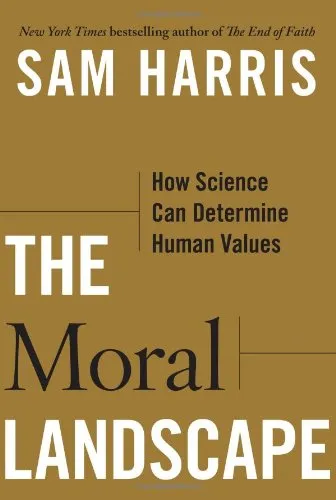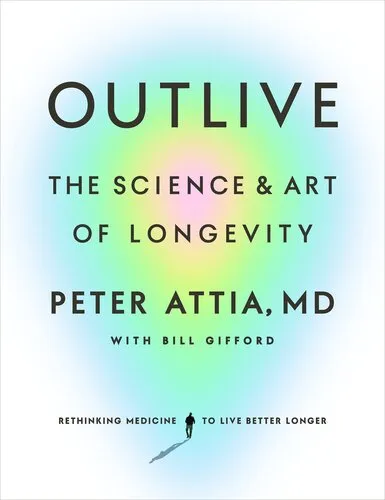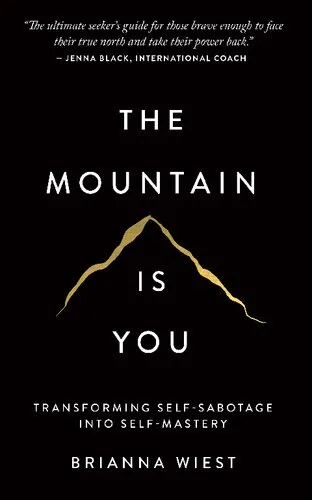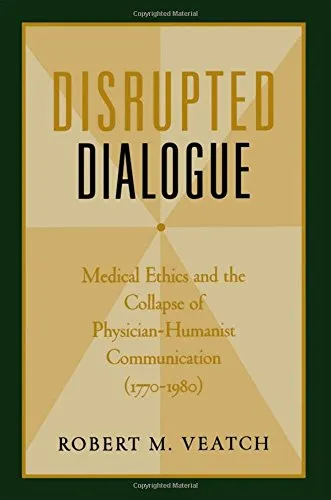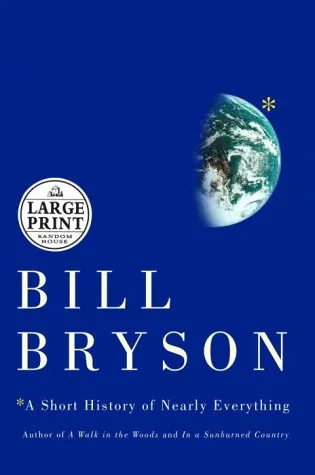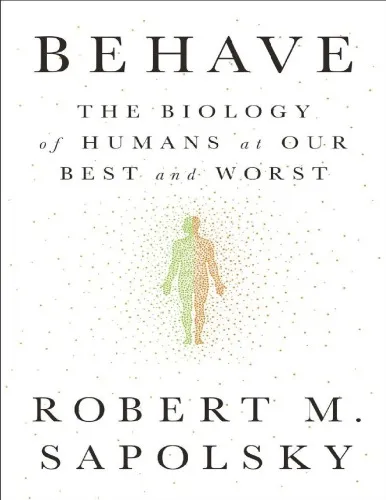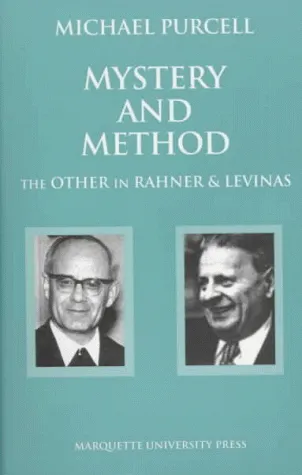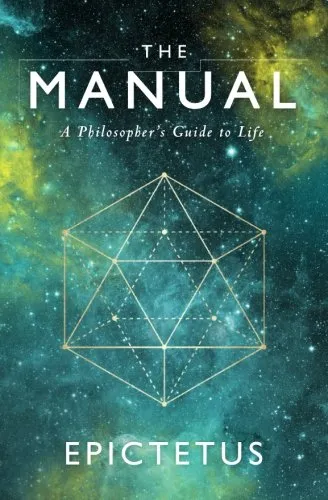The Moral Landscape: How Science Can Determine Human Values
4.0
بر اساس نظر کاربران

شما میتونید سوالاتتون در باره کتاب رو از هوش مصنوعیش بعد از ورود بپرسید
هر دانلود یا پرسش از هوش مصنوعی 2 امتیاز لازم دارد، برای بدست آوردن امتیاز رایگان، به صفحه ی راهنمای امتیازات سر بزنید و یک سری کار ارزشمند انجام بدینکتاب های مرتبط:
معرفی کتاب: The Moral Landscape
کتاب «The Moral Landscape: How Science Can Determine Human Values» به نگارش سام هریس در تلاش است تا نشان دهد که چگونه علم میتواند نقشی حیاتی در تعیین ارزشهای انسانی بازی کند. در این کتاب، هریس به مقابله با این ایده میپردازد که علم هیچ دسترسی به عرصه ارزشها ندارد و آنها را بطور تجربی قابل سنجش نشان میدهد.
خلاصه جامع کتاب
سام هریس در این کتاب به یکی از بحثبرانگیزترین موضوعات فلسفی زمان ما میپردازد: رابطه میان علم و اخلاق. هریس معتقد است که تفکیک سنتی میان «دانشهای هنجاری» و «دانشهای توصیفی» بیاساس است و این دو باید با هم ترکیب شوند. او ادعا میکند که پرسشهای اخلاقی و ارزشها به طور واقعی میتوانند به کمک روشهای علمی به جواب برسند.
نکات کلیدی
- هریس مفهوم Landscape اخلاقی را معرفی میکند، جایی که پیکرههای بلند و کوتاه نشاندهنده بیشینه و کمینه سعادت بشر هستند.
- او تأکید میکند که اخلاق وابسته به وضعیت مغز انسان و تجربههای ذهنی اوست.
- نقد دیدگاه نسبیگرایی اخلاقی و دفاع از عینیتگرایی اخلاقی.
جملات معروف از کتاب
"دنیای اخلاقی، امکان استفاده از دانش علمی برای بهبود زندگی انسانها را پیشنهاد میدهد."
چرا این کتاب اهمیت دارد؟
کتاب The Moral Landscape یک اثر موثر است که به نقد و بررسی یکی از مهمترین جنبههای فلسفه و علم پرداخته است. این کتاب تلاش میکند تا نشان دهد که علم میتواند نحوه تفکر ما درباره اخلاق را تغییر دهد، به خصوص در جهانی که چالشهای اخلاقی مدام در حال پیچیدهتر شدن است.
برای بحث در باره نقش علم در زندگی انسانها و چگونگی دستیابی به یک جامعه عادلانهتر، «The Moral Landscape» برای همه علاقهمندان به فلسفه، علم و اخلاق توصیه میشود.
Introduction to The Moral Landscape: How Science Can Determine Human Values
In "The Moral Landscape: How Science Can Determine Human Values," Sam Harris embarks on a profound exploration of the relationship between science and human values. In this groundbreaking book, Harris argues that science can, and should, be an authority in ethical debates, proposing a new paradigm in which moral truths exist on a continuum of well-being that human reasoning can discover.
Summary of the Book
The traditional belief that science and morality are distinct realms is a central challenge that Harris addresses in "The Moral Landscape." Harris posits that the dichotomy is a false one, claiming that the same empirical rigor applied in scientific inquiry can likewise illuminate questions of morality. He introduces the concept of "the moral landscape," which represents a multitude of experiences that contribute to human and animal well-being.
Harris articulates that moral questions are not an exception to scientific methods. Instead, they are fundamentally questions about the well-being of conscious creatures. He argues that there are objectively right and wrong answers to these questions based on how actions contribute to the heightening or diminishing of well-being. In his view, moral relativism—where morality is seen as culturally dependent or subjective—is inadequate for the modern world, where universal human rights and global ethical standards are increasingly vital.
Key Takeaways
- Morality should be grounded in the sciences, particularly those that pertain to understanding human well-being, such as neuroscience and psychology.
- Moral relativism is insufficient in addressing global ethical challenges; there are right and wrong answers in moral discussions.
- The concept of a "moral landscape" suggests multiple peaks and valleys, representing the range of human experiences from suffering to flourishing. These moral terrains are accessible and discoverable through human inquiry.
- Evolving scientific understanding across disciplines can contribute to resolving ethical issues, much like they resolve debates in medical or environmental fields.
Famous Quotes from the Book
"The separation between science and human values is an illusion, and the moral landscape exists within scientific reach."
"Morality should be seen, in part, in light of the consequences of our actions on the well-being of conscious creatures."
Why This Book Matters
In a rapidly globalizing world fraught with ethical dilemmas, ranging from technological advancement to socio-political crises, "The Moral Landscape" offers a revolutionary framework for considering moral issues. Harris contends that by relying on scientific insight, humanity can achieve a more coherent and universal structure of ethics, dismissing the antiquated boundaries that have traditionally kept science and morality separate.
This book matters because it challenges both the layperson and the scholar to rethink how we establish ethical norms and create societal values. By providing a scientific approach to questions of right and wrong, Harris ignites a necessary dialogue about how humanity can leverage knowledge to heighten collective well-being. This paradigm shift is crucial to navigating an interconnected world encountering unprecedented challenges and opportunities.
دانلود رایگان مستقیم
شما میتونید سوالاتتون در باره کتاب رو از هوش مصنوعیش بعد از ورود بپرسید
دسترسی به کتابها از طریق پلتفرمهای قانونی و کتابخانههای عمومی نه تنها از حقوق نویسندگان و ناشران حمایت میکند، بلکه به پایداری فرهنگ کتابخوانی نیز کمک میرساند. پیش از دانلود، لحظهای به بررسی این گزینهها فکر کنید.
این کتاب رو در پلتفرم های دیگه ببینید
WorldCat به شما کمک میکنه تا کتاب ها رو در کتابخانه های سراسر دنیا پیدا کنید
امتیازها، نظرات تخصصی و صحبت ها درباره کتاب را در Goodreads ببینید
کتابهای کمیاب یا دست دوم را در AbeBooks پیدا کنید و بخرید
1476
بازدید4.0
امتیاز0
نظر98%
رضایتنظرات:
4.0
بر اساس 0 نظر کاربران
Questions & Answers
Ask questions about this book or help others by answering
No questions yet. Be the first to ask!
